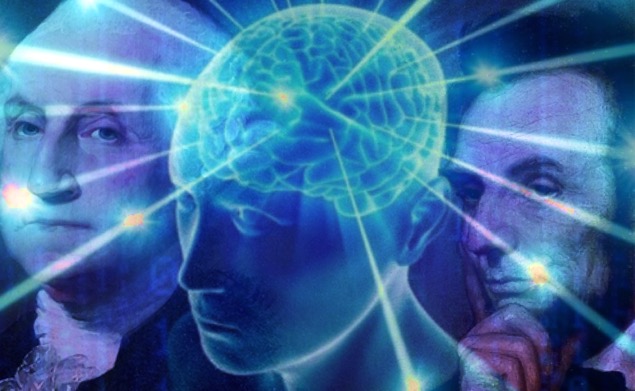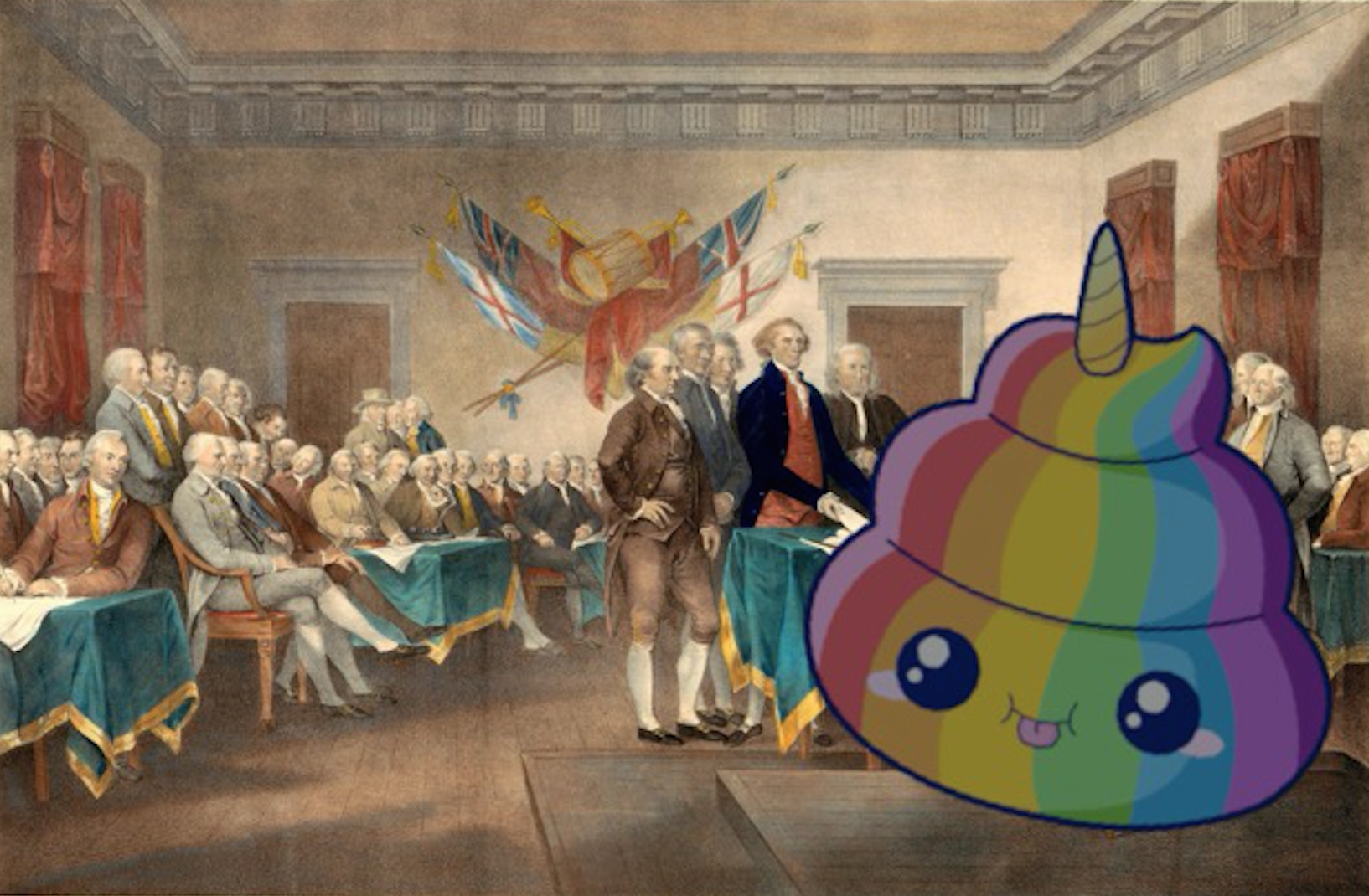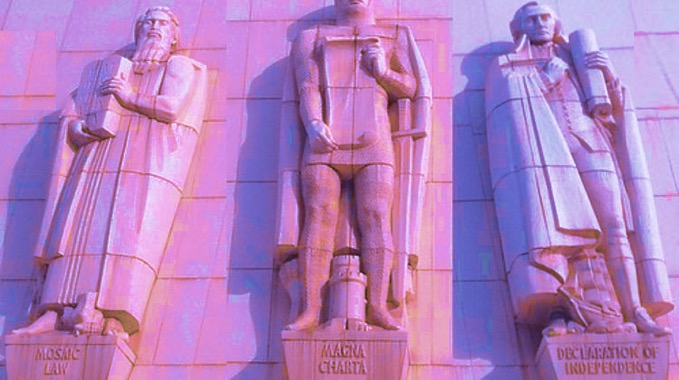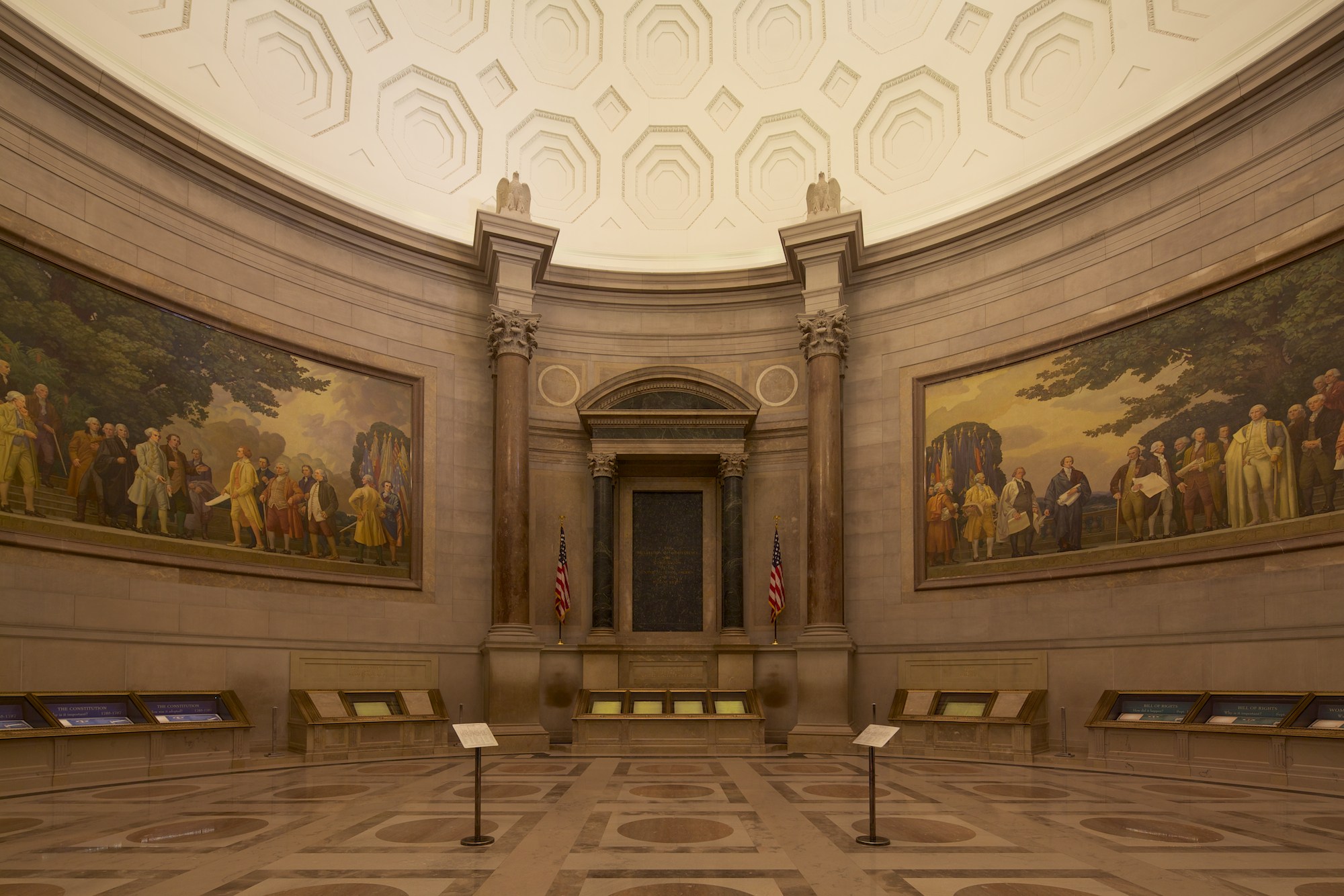Today's fights on the Right benefit old wisdom and new thinking alike.
American Law Is Not “Neutral” on Religion

Moral and religious neutrality undermines the basis of American law.
In his recent apologia, David French revealed a political philosophy quite at odds with the Founding: “Here is the absolute, blunt truth: America will always be a nation of competing worldviews and competing, deeply held values.”
This moral and religious neutrality has no basis in our Constitution. As James Wilson explained: “In the United States, the legislative authority is subjected to another control, beside that arising from natural and revealed law; it is subjected to the control arising from the constitution.” Here, the political order is built on God:
The third hypothesis contains a solemn truth, which ought to be examined with reverence and awe. It resolves the supreme right of prescribing laws for our conduct, and our indispensable duty of obeying those laws, into the omnipotence of the Divinity.
From the American perspective, Wilson was not saying anything controversial. The Declaration avers that man is endowed by his Creator with “certain inalienable Rights,” and that governments are instituted to secure them. This organic law was not an aspirational statement; it was a political one establishing the grounds of the colonies’ political independence.
President John Adams reaffirmed this understanding when distinguishing our republic from that of secular France. Since “our Constitution was made only for a moral and religious People,” and is “wholly inadequate to the government of any other,” how can it require neutrality between religion and irreligion? George Washington put a finer point on it: a man cannot be a patriot and attack morals and religion—the pillars of our government and freedom. Constitutions are not suicide pacts. Our Constitution cannot allow laïcité.
This same understanding of the nature of the Union was vividly expressed in the Civil War. President Lincoln irrevocably united the American experiment to God:
from these honored dead we take increased devotion to that cause for which they gave the last full measure of devotion—that we here highly resolve that these dead shall not have died in vain—that this nation, under God, shall have a new birth of freedom—and that government of the people, by the people, for the people, shall not perish from the earth.
Many of the Civil War dead perished after hearing the words of the Battle Hymn of the Republic. Consent and law are not formed just by counting votes. A life is the greatest testament that can be given that a rule is binding—upheld even on pain of death. Americans gave their lives to defend the natural law that God made all men free.
Public officials responded accordingly. It was in 1864 that lawmakers voted to place “In God We Trust”—made the national motto less than 100 years later—on the two-cent coin. In 1892, the Supreme Court, in Church of the Holy Trinity v. United States, even concluded that the United States was a “Christian nation.” It then used that legal opinion as a criterion for interpreting a congressional statute.
This country and its fundamental laws have never been neutral on matters of religion. Arguments in this direction undermine the basis of religious freedom. Religious neutrality is itself a religious theory. It holds that a “given belief” can be a religion if it “is sincere and meaningful” and “occupies a place in the life of its possessor parallel to that filled by the orthodox belief in God” (United States v. Seeger). But a belief that takes the place of God is by definition an idol. Neutrality, then, is anything but; it is idolatry.
The inevitable result is that, in practice, “neutrality” means any sincere belief is treated as a religion, which contradicts and ultimately eradicates the notion that religion serves the political or moral good of the nation. As Hadley Arkes has pointed out, the putatively neutral approach to religion culminates in treating it as if it lacks any rational ground at all.
These theories have no logical or historical connection to the Founding. Religion is not a personal viewpoint or an abstract concept in American law or politics. It is a duty owed to our Creator. Thus, religious freedom is not a toleration or allowance we make for superstitious or irrational citizens, granted under only the narrowest of circumstances. Rather, it is the way the polity acknowledges and asserts—through legal obligations it takes on to recognize religious rights—that it is God who ultimately rules, not kings, oligarchs, or mobs.
Does this then mean theocracy? Of course not! As James Wilson, once again, explained,
the scriptures support, confirm, and corroborate, but do not supersede the operations of reason and the moral sense. The information with regard to our duties and obligations, drawn from these different sources, ought not to run in unconnected and diminished channels: it should flow in one united stream, which, by its combined force and just direction, will impel us uniformly and effectually towards our greatest good.
The kind of creature that was made to give and understand reason is not meant to be ruled like a donkey. Even God, our Lord, comes to us as a friend. This truth prohibits compelled or forced religion.
Far from creating a theocracy, accepting the religious foundations of our republic will tend to restrict the adoption of ideologies as mandated political orthodoxy. It is no mistake that the United States took renewed interest in “In God We Trust” during the Cold War. By trusting in God, we avoid putting our trust in those destructive ideologies of man.
Indeed, recognizing Biblical religion in America for what it is will strengthen, not lessen, minority rights. By affirming a religious right that reinforces the notion that all rights originate from the immutable ordinances of God, we inform both the law and the public imagination that these rights are inalienable and cannot be altered or abolished by government.
Even if we lose some legal battles by adhering to our Founding, it’s preferable to winning arm-in-arm with racists, post-humanists, and other deniers of our created human identity. Already, judicial nominees cannot tell the difference between religion and the most pathological ideologies; they, and, increasingly, we, acquiesce to a body of case law that insists courts cannot tell the difference between the Catholic Church and the KKK or between the Methodist Church and the Church of Satan. This willful ignorance steals honor from religion and makes it impossible for religion to be considered an objective good in public life.
Americans should proudly affirm the rationality of their religious practice—one in which our Revolution, our Founding, and our “new birth of freedom” was firmly rooted. These victories were made possible by our religious foundations. It is intolerable that the legal system originally built on these foundations now treats them as something deserving of nothing more, and often considerably less, than toleration. Neutrality between religion and irreligion does not secure American freedoms. It destroys the basis of natural rights and American law.
The American Mind presents a range of perspectives. Views are writers’ own and do not necessarily represent those of The Claremont Institute.
The American Mind is a publication of the Claremont Institute, a non-profit 501(c)(3) organization, dedicated to restoring the principles of the American Founding to their rightful, preeminent authority in our national life. Interested in supporting our work? Gifts to the Claremont Institute are tax-deductible.
The New Right renews Americanism.
A technological transformation is behind the rise of the New Right.
The New Right must reassert a vision of justice rooted in the common good.
The American Founding was not based on “neutral principles.”
The Ahmari-French debate is just the beginning.






